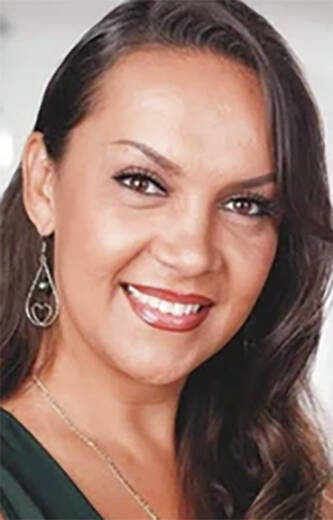Nonprofit reports needle exchange record
The nonprofit Hawaii Health and Harm Reduction Center reported a record number of needle syringe exchanges in Hawaii County and the state in 2021.
More than 1.23 million syringes were exchanged statewide, a 4% increase from 2020. For the Big Island, 362,652 syringes were exchanged with 557 participants, the highest number of exchanges since the program started in 1993.
Statistics for 2022 are not yet available.
The average client was 42 years old, with 84% using methamphetamine and 67% using heroin. Roughly 54% were experiencing homelessness, and 85% were insured.
Between 1993 and 2021, the program exchanged more than 16.5 million syringes.
“Increases in our numbers means more people are getting access to our services, and that’s a good thing,” said author of the study, Dr. Sophie Gralapp, adding yearly increases in the numbers of exchanges have occurred with few exceptions since 1993. “There’s a lot of research to support increased access to syringe exchange resources does not negatively impact drug use. If anything, it makes it safer and actually might reduce use.”
A U.S. Centers for Disease Control and Prevention report from 2021 found new users of syringe exchange programs were three times more likely to stop using drugs. It also found the programs contributed to a 50% reduction in HIV and Hepatitis C incidences.
“We practice harm reduction,” Gralapp said. “That means any positive change.”
HHHRC’s program also provides Narcan to clients, a brand of naloxone that reverses opioid overdoses. The group reported overdose reversals increased by 115% in 2021.
“It’s definitely higher than that,” Gralapp said. “What we give out is also given to our clients’ friends, so we’re not getting to follow up with those folks to see if they used it, how often, and how many (overdose) reversals it resulted in.”
Since 2016, the HHHRC opioid prevention program trained more than 1,300 individuals to administer the lifesaving drug.
Often the first on-the-ground resource for disadvantaged groups seeking public health services, HHHRC supports drug addiction treatment, but it’s not a requirement.
“That’s a big part of the trust that exists between our program and our clients,” Gralapp said. “They know it’s available if they want it, and we make that known, but we don’t try and make anybody do anything.”
That trust is shared with Kumukahi Health and Wellness in Kailua-Kona, the only fixed location for the Big Island’s syringe exchange program.
The site averages 74 monthly visits, with 152 syringes exchanged per visit.
“Those are needles we keep out of the beach parks, school yards, district parks and off the streets,” said Keiva Lei Cadena, director of harm reduction services at Kumukahi Health. “We’re also curbing the community spread of things like Hepatitis C, HIV and other infectious diseases.”
Kumukahi Health also provides services including insurance support, free HIV and Hepatitis C testing, case management services and educational help.
“When a person is coming in to exchange needles, they’re also connecting to all those different programs,” Cadena said. “It’s really a key linkage piece to ensure people are staying connected to quality health care.”
HHHRC’s mobile clinic in Hilo distributes items like first aid kits, food, fentanyl test strips, and HIV tests.
For East Hawaii, just one HHHRC outreach worker provides all services via a mobile clinic, traveling to various locations. HHHRC provides clients with a phone number and a list of upcoming locations, and Kumukahi Health launched its own mobile clinic in 2022.
“We started doing exchange services outside in public areas,” Cadena said. “A key component of harm reduction is meeting people where they are.”
Despite Hawaii being the first state to establish a state-funded needle syringe exchange program, it’s one of only three that still uses a one-for-one exchange model, meaning a used syringe is required to receive new one.
“The problem with that model is sometimes people don’t have any, especially if they’re houseless and had to leave their belongings,” Gralapp said, adding homeless camp sweeps have increased in recent years. “There’s a Big Island issue of pharmacies refusing sale (of syringes) too. It was initially meant to protect the seller, but in this situation, it has been reversed and is harming the buyer.”
Despite the increase in syringes exchanged, user visits decreased by 6.5% statewide in 2021.
“People are making fewer trips, but they’re bringing more syringes with them,” Gralapp said. “There’s a lot more activity on the Big Island than I’ve seen traditionally, and we’re not sure yet why, but we’re keeping our ear to the ground.”
Email Grant Phillips at gphillips@hawaiitribune-herald.com.


